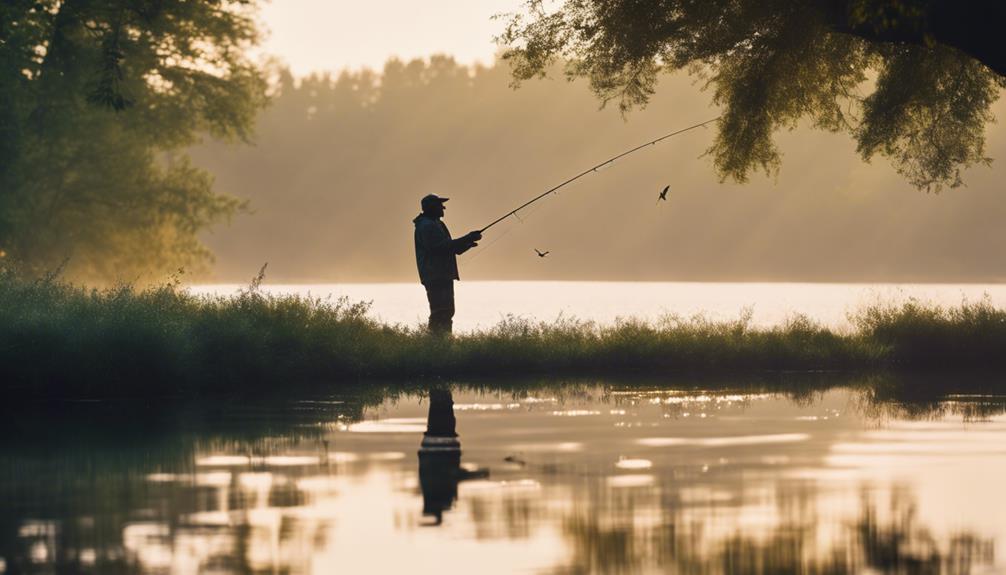Crabbing is a popular recreational activity that many people enjoy along coastlines and estuaries. However, before you set off on your crabbing adventure, you may be wondering, do you need a license for crabbing? In this blog post, we will explore the various regulations surrounding crabbing, the importance of licensing, and tips for successful crabbing experiences.
Understanding Crabbing Regulations
Crabbing regulations vary significantly from one state to another and even between local jurisdictions. Most states require some form of licensing to control the crabbing population and ensure sustainable practices. Licensing helps manage the number of crabbers in a designated area and protects crab populations from overfishing. Therefore, it is essential to check the specific regulations for your location before heading out.
In many states, there are defined seasons for crabbing, limits on the number of crabs you can catch, and restrictions on the types of equipment you can use. Some regions may allow crabbing year-round, while others have designated seasons to protect crabs during their breeding periods. Make sure to review these regulations to avoid fines or penalties.
Why Licensing is Important for Crabbing
The question, do you need a license for crabbing? leads to a broader discussion about the importance of licensing in preserving marine ecosystems. Licensing not only helps regulate the number of crabbers but also aids in data collection for fisheries management. By requiring licenses, state agencies can track how many people are participating in crabbing and assess the health of crab populations.
Furthermore, having a license often means that you are required to follow specific guidelines regarding the size, species, and quantity of crabs you can keep. This helps ensure that crabbing remains a sustainable activity for future generations. Additionally, fees collected from licenses are typically used to fund conservation efforts, research, and public education about responsible crabbing.
Types of Crabbing Licenses Available
When it comes to crabbing licenses, there are typically several types available, depending on your needs and location. For recreational crabbers, many states offer a simple recreational license that allows individuals to catch a specified number of crabs for personal consumption. These licenses are usually affordable and easy to obtain, with options for both residents and non-residents.
In some areas, you may also find specialized licenses for commercial crabbing, which are more expensive and come with stricter regulations. Commercial licenses allow individuals or businesses to catch and sell crabs, often requiring additional permits and reporting to ensure that crabbing practices are sustainable. Always consult your local wildlife agency to determine which license fits your crabbing intentions best.
How to Obtain a Crabbing License
Obtaining a crabbing license is generally a straightforward process. Most states allow you to apply for a crabbing license online through their wildlife agency’s website. You’ll typically need to provide some personal information, such as your name, address, and date of birth. Depending on the state, you may also be required to complete a short educational course on responsible crabbing practices.
In addition to online applications, many states also offer licenses at local sporting goods stores, bait shops, or government offices. Remember to double-check the validity period of your license, as some may be issued for a specific season, while others may be valid for an entire year.
Crabbing Without a License: The Risks
Crabbing without the necessary license can lead to serious consequences. Many states impose hefty fines for fishing violations, and being caught without a crabbing license can result in penalties that far exceed the cost of obtaining one. In some cases, repeat offenders may even face criminal charges.
Beyond the legal implications, crabbing without a license contributes to overfishing and can have negative impacts on local ecosystems. If everyone were to crab without a license, crab populations could decline, leading to stricter regulations and diminished opportunities for future crabbers. Therefore, it is always best to play by the rules and ensure you have the proper documentation before you start crabbing.
Best Practices for Sustainable Crabbing
In addition to obtaining the necessary licenses, practicing sustainable crabbing is crucial. Here are some best practices to consider when you head out for your crabbing adventure:
1. Know the Limits: Always be aware of the catch limits and size regulations for crabs in your state. Only keep crabs that meet the legal size requirements.
2. Use Proper Equipment: Use gear that minimizes harm to non-target species, such as crab pots with escape rings for smaller crabs and bycatch.
3. Follow Seasonal Guidelines: Abide by seasonal regulations to allow crabs to reproduce and maintain healthy populations.
4. Practice Catch and Release: If you’re unsure about a crab’s size or species, it’s best to release it back into the water.
5. Educate Others: Share your knowledge about sustainable crabbing practices with fellow crabbers to promote responsible fishing habits.
Conclusion: Enjoying Crabbing Responsibly
In conclusion, the answer to the question, do you need a license for crabbing? is generally yes. Obtaining a crabbing license is essential not only for legal compliance but also for promoting sustainable practices that protect crab populations and marine ecosystems. By understanding local regulations, obtaining the appropriate licenses, and following best practices for crabbing, you can enjoy this rewarding recreational activity while ensuring that future generations can also experience the joys of crabbing. So gear up, grab your license, and get ready for a fun day out on the water!
